The Bold and the Beautiful
WindANewSourceofPower
OriginsrecentlypartneredwithCommunityEnergy,Inc.topurchasewindcreditstopowerallitsretailstoresaswellasitsmanufacturingfacilities.AsofJuly1,2007,thecompanyconvertedtowindenergy,andit’shopingitsdepartment-storepartnersmightjumponthebandwagonaswell.”ThroughthisagreementwithCommunityEnergyforwindenergyRenewableEnergyCertificates,Originsisstayingtruetoourmantra:preservationofearth,animalandenvironment,”saysDariaMyers,presidentofOrigins,inacompanypressrelease.”Windpoweriscleanandrenewableandisanotherwaywecanhelppreserveourworldforfuturegenerations.”
ThroughitscontractwithCommunityEnergy,Originshasagreedtopurchase7,196,000kilowatt-hoursofclean,emission-freewindenergycertificates.Theenvironmentalbenefitfromthispurchaseisequaltooffsettingapproximately4,304metrictonsofcarbondioxide,accordingtothecompanypressrelease,anditsimpactisequivalenttoplantingmorethan3,800acresoftreesortakingalmost900carsofftheroad.
Thisparticipationhasearnedthecompanysomerecognition.”WeactuallyjustgotanawardfromtheEPAasbeingoneoftheirtop50companiesinthecountrythat’sparticipatinginwindenergy,”Belknapsays.Andthecompanyismakingsureallitscustomersarewellawareofthisundertaking.Asealonthedoorsofitsretailstoressays,”We’reproudtousewindenergy.”Therearealsosmallsignsonthecountersthatexplainhowcustomerscangetinvolved.
When Origins launched in 1990, it immediately established itself as a brand dedicated to the environment. The company was truly on the cutting edge, integrating sustainable practices from the very beginning. Since its launch, the company’s mission has been to “promote beauty and wellness through good-for-you products and feelgood experiences.”
Through constant progression, Origins has remained at the forefront of the sustainability movement. As a matter of fact, Origins was one of the fi rst cosmetic brands to make the decision not to test its products on animals and not use animal ingredients. The company also requires that its suppliers not test raw materials on animals. Now, 18 years later, Origins refuses to be anything but a leader in such an important cause. “Our philosophy has always been about being pure and green and sustainable,” says Jenny Belknap, Origins’ vice president of global marketing, “and we are constantly looking for new ways to enhance that and be better citizens of the world.”
The Organic Advantage
Although Origins has always introduced environmentally friendly products, it wasn’t until recently that it launched its USDA-certifi ed Origins Organics collection. According to Belknap, it is the fi rst full line of skin- and body-care products certifi ed by the USDA. “There actually isn’t any mandatory regulation surrounding organics in personal care; everything is voluntary,” says Belknap. So when Origins decided to enter the organics space, they wanted to do it in a way that was really clear and easy to understand for the customer, she says, which is why they decided to follow the USDA’s food standards.
The full organic collection debuted in October 2007, and the products have been well received among consumers. “There is certainly a core customer that is all about an organic lifestyle,” Belknap says. But there are also customers who are just beginning to dabble in the organic market. And with new products in the pipeline, those at Origins are looking forward to expanding the line and ultimately converting those dabblers into regular customers.
Another recent initiative is Origins’ “purity platform,” an effort in the past three years to reformulate all its products. Based on consumers’ demands, Origins has decided to remove certain ingredients as well as inform consumers of the ingredients that have never been used in their products. “We’re in the process of using all new packaging that has what we call a purity statement on it,” says Belknap. “And basically it lists out all the ingredients that our products are made without.” This keeps the consumers informed and aware of what they are putting on their bodies and further illustrates Origins’ commitment to the organic process.
Getting the Customers Involved
Origins has been extremely successful in educating its customers and getting them involved in living a more sustainable lifestyle. One way the company has targeted its younger consumers is by launching a Facebook page. The social networking website for students and young adults is a perfect venue to interact with consumers who are really interested in the organic space. “They’re so educated compared to those [in older generations],” Belknap says. “I feel like they’re educating their parents, and they’re inspiring their parents to make changes in their lives and in their households.” By appealing to these younger consumers, Origins has been able to get its message across to other demographics as well.
The company is also in the middle of a contest right now called “How Eco-Fabulous are You?” It is being run through the Origins Organics website (www.origins.com/organics). The contest invites consumers to submit an essay, picture or video explaining how they have made their lives more “eco-fabulous.” Visitors on the website can then vote on which entries they think are best, and the most popular one will receive an award. The big prize is a trip to the Hotel Terra Jackson Hole, an ecofriendly resort in Teton Village, Wyo. Other prizes will include organic chocolate, organic wine, organic towels and other products designed to help consumers make their lives more eco-friendly, Belknap says.
According to Belknap, Origins has become a known brand among a fair number of consumers. “I think when they see us making this step, they’re like, ‘I can trust them, and they’re doing exactly what I want them to be doing,'” she adds.
Balancing the Message
As a retailer, it can be diffi cult to appeal to a wide range of customers, especially when it comes to all things eco-friendly. You want to appeal to the young, inthe- know consumer who is already interested in the green movement, but you don’t want to neglect your older customers who may not be as informed on the topic. Somehow, Origins has managed to get its message across through multiple channels successfully.
To reach more like-minded consumers when the company launched Origins Organics, campaigns on treehugger.com and lime.com, as well as a dedicated e-mail with Ideal Bite (www.idealbite.com), helped spread the word. “We just thought those were great ways to go where people were interested in organics and sustainability,” she says.
Then there are those consumers who are just dabbling in organics or not as familiar with such products. Origins used more traditional media to reach a broader consumer base. They advertised in magazines such as Allure, InStyle and Stuff. And to spark their interest in organic products, Origins focuses on what’s in it for the customers. They let the consumers know that not only are the products good for the Earth, but the consumers themselves can benefit from them.
“We really tried to have a balanced message,” Belknap says. “I think it’s critically important that as we move forward with organics but also with the brand as a whole that we continue to focus our attention where our customers are, the people who are already our customers or, more importantly, who will become our customers if we communicate our message more clearly to them.” Origins doesn’t want to be heavy-handed in its “organicness.” It’s really about offering the customers the choice and making them feel good about it.
Not Just About Products
For retailers, becoming involved in the sustainability movement does not mean just offering ecofriendly or organic products. There are various ways to conserve resources by changing business practices, altering store design or just by educating your consumers.
When the Origins brand launched, it created Origins Empties, which asked customers to bring their empty bottles back to the stores to be recycled. The program was eventually discontinued because “it was concluded that local recycling had evolved enough it wasn’t necessary,” explains Belknap. However, with the launch of Origins Organics, there are some products that may be diffi cult for consumers to take apart on their own because of special packaging. So the program has been reinstituted for those products, and Origins “will always take back anything that anyone brings back,” adds Belknap.
Another recent development is a brand-new design for all its freestanding stores. According to a company press release, the new design “intends for the customers to feel like they are shopping in an outdoor nursery with green plants, bolder graphics and arrangements that inspire and highlight the genius of nature.”
Belknap says the new store design came about because the brand wanted to be sure it was using the most updated and sustainable materials in building out the stores. And as most retailers know, sometimes a simple facelift is needed to draw new customers.
An Evolving Conversation
One of the keys to Origins’ success is that the company is constantly looking for ways to improve, whether it’s launching a new product line, changing up the store design, developing new packaging or using alternative sources of energy. “It’ a constantly evolving thing,” says Belknap. “As we move forward with the next generation of these stores or even the next roll-out, we’ll continue to use better materials as they become available.”
As long as consumers continue becoming more involved in organics and sustainability, retailers and manufacturers need to constantly ask themselves what they can do to make themselves more socially responsible. Origins knows it must lead by example. Consumers are asking themselves, “What is organics?” “What food am I buying?” “What am I putting in my body?” “What light bulbs am I using?” “What car am I driving?” This movement has gone from a trend to something that is permeating our entire culture, says Belknap. “And if things keep moving in this positive direction, it’s certainly going to be better for all of us and future generations,” she adds.


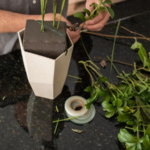





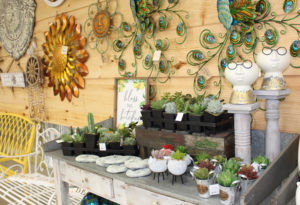



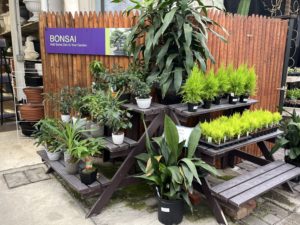

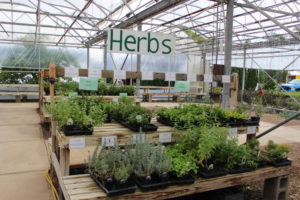
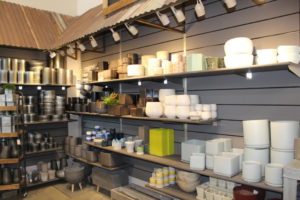
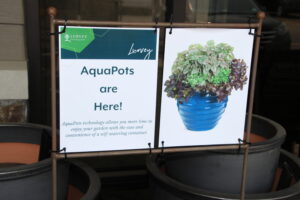
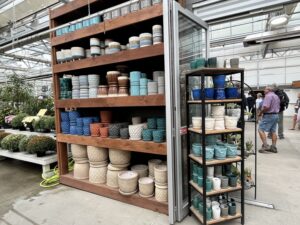
 Videos
Videos





